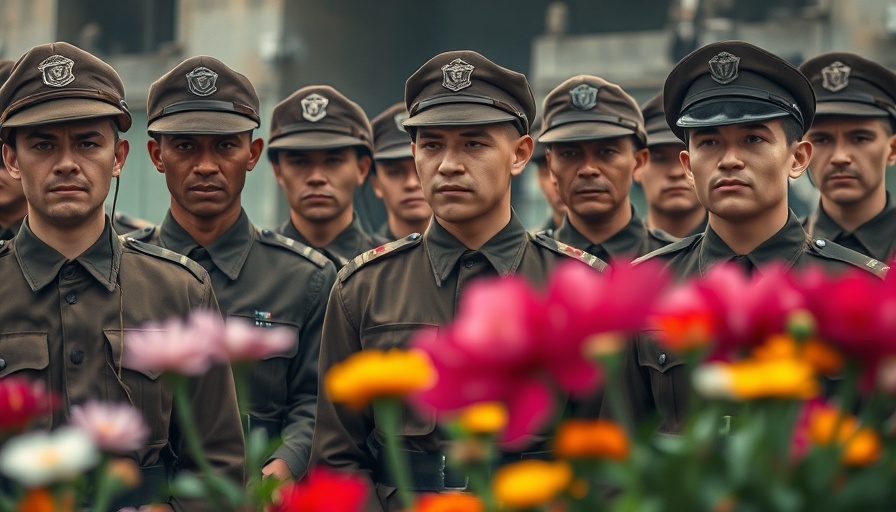
The Echoes of Homer in Modern Warfare
In the shadow of modern conflicts, the lessons embedded in ancient texts take on profound significance. Major Amir Sekori, an officer in the Israel Defense Forces (IDF), approached Homer’s Iliad not as a textbook, but as a guide—much like a map that would direct him through the treacherous terrain of both war and life. This dichotomy of education and warfare illuminates how classical literature resonates in the minds and hearts of those who fight for their nation.
A Soldier’s Journey Through the Iliad
Amir's experience in the classroom was transformative; initially, he struggled to connect with the epic narrative. However, his renewed approach—the intense scrutiny of each line as if it were critical intelligence—allowed him to unlock layers of meaning. As Amir delved deeper into the text, he began to appreciate the nuances of leadership and sacrifice displayed by characters like Hector, who navigated the heart-wrenching decisions of duty and devotion. The Iliad acted as more than mere literature; it became a philosophical compass guiding soldiers like Amir through the harrowing decisions that define a leader in battle.
The Relevance of Ancient Texts in Times of Crisis
The correlation between Homeric narratives and modern conflicts is stark, highlighting humanity's persistent struggles. The valiant acts and profound losses depicted in the Iliad mirror the realities faced by current soldiers, offering insights into their psychological burdens and moral dilemmas. For Amir, lessons from the text transcended classical education, providing a framework through which to process grief, valor, and the weight of mortality as he faced the battlefield.
Sharing Stories: A Bond Strengthened Through Literature
For soldiers returning from combat, sharing their experiences through literature like the Iliad can become a healing process. Discussions in classrooms filled with veterans foster camaraderie and allow for the exploration of shared emotional landscapes. By connecting personal narratives with timeless tales, these discussions underline how comprehensively intertwined personal human experiences are with history and literature.
Lessons for the Next Generation
The legacy of Amir’s story serves as a grim reminder for students and educators alike. The Iliad can be invaluable in teaching empathy, strategy, and the fine art of leadership, especially in the face of adversity. It solidifies the notion that the stories of the past can guide contemporary choices, echoing the sentiment expressed in Judges 3:2: to teach war, but also resilience and honor.
Looking Forward: Literature Amidst Ongoing Conflict
As society grapples with the scars of ongoing conflicts, the demand for literature that mirrors our experiences remains paramount. The ability to understand and articulate one's challenges through the lens of great stories empowers individuals to navigate tumultuous times. As educators, leaders, and community members, fostering dialogues centered on these texts may cultivate a deeper understanding of the sacrifices made in conflict.
Ultimately, allowing our youth to engage with the Iliad and similar works can yield richer perspectives, producing future leaders who not only understand strategy and warfare but also anchor their actions in compassion and understanding.
 Add Row
Add Row  Add
Add 




Write A Comment